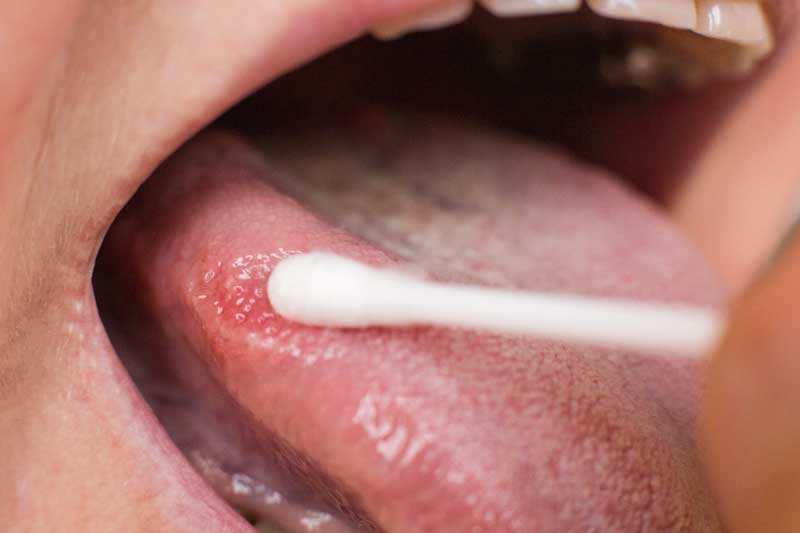Better Health Begins with Oral Cancer Screenings
According to the American Cancer Society, oral cancer consists of 2.9 percent of all cancer diagnoses in the U.S. Thanks to decades of research and the advancement of new screening technologies, experts like Dr. Warren Boardman of Ridgewood Dentistry in Ridgewood, New Jersey, can provide oral cancer screening for cancers such as mouth cancer and tongue cancer early enough so patients can begin treatment before it’s too late.
The Truth About Oral Cancer
Oral cancer occurs in any area of your orofacial complex. However, the disease most often develops in the tongue, gums, tonsils, oropharynx, lips, the floor of the mouth, hard palate, or cheek lining.
And while anyone can develop this disease, oral cancer is twice more likely to be diagnosed in men than women. Men who are heavy smokers and drinkers and above age 50 are especially at risk of oral cancer.
Other risk factors include people:
- Who are exposed to excessive UV light from sources such as sun lamps or the sun
- Diagnosed with gastrointestinal reflux disease (GERDS)
- Who had undergone neck and head radiation treatment
- Exposed to specific chemicals
- Who consume a poor diet
Over the last few decades, we’ve seen a decrease in the number of fatalities from oral cancer, thanks mainly to the advances in early detection and treatment methods.
That said, there has also been an increase in oropharyngeal cancer caused by the increased spread of HPV (human papillomavirus), a sexually transmitted disease.
Oral Cancer Symptoms
Common symptoms of oral cancer can include:
- Lip and mouth sores that don’t heal
- A reddish or white patch on the inside of your mouth
- Loose teeth
- A lump or growth inside your mouth
- Ear pain
- Mouth pain
- Pain or difficulty opening your mouth, swallowing, or chewing
Early Detection Saves Lives
As part of his comprehensive exam, Dr. Boardman screens his patients for oral cancer. He begins by reviewing your dental and medical histories while asking if there have been any changes in your oral and overall health. He then thoroughly checks inside and around your oral cavity as well as your neck and head areas to detect any physical symptoms or signs that could cause concern.
If you’re experiencing any of the symptoms mentioned above, you should contact Ridgewood Dentistry at (201) 448-8605 to schedule your consultation with Dr. Boardman as soon as possible.


